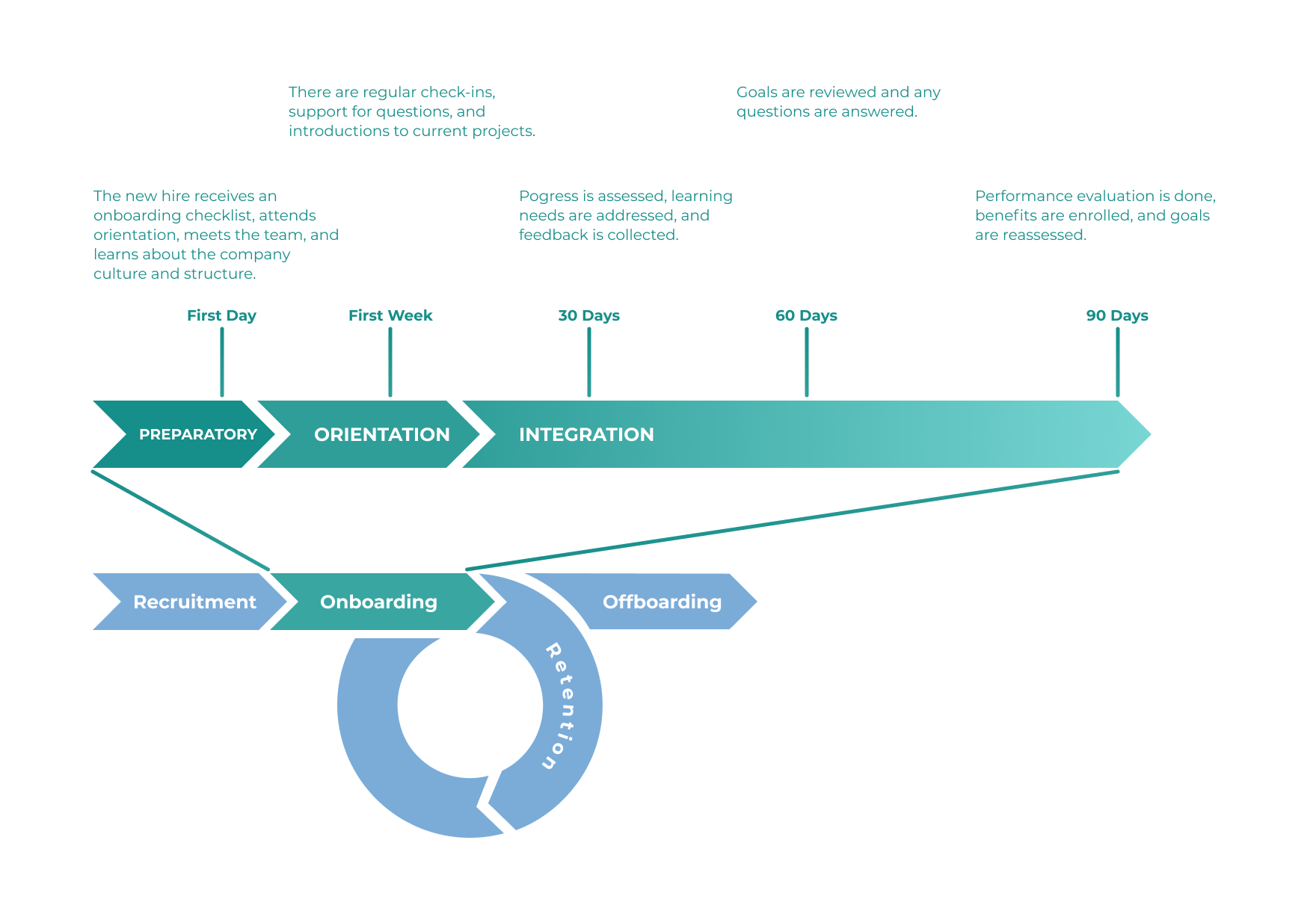

Building a business is hard. Keeping it running smoothly as you grow is even harder. In a small, tight-knit startup team, everyone wears multiple hats. Deadlines are tight, and pressure is constant. In this environment, even small gaps in communication or alignment can ripple through the team. People get frustrated, engagement drops, and turnover starts creeping in – often before anyone realizes it.

This onboarding journey diagram is designed to systematically guide new hires beyond basic role adaptation into a deep assimilation of the company's culture and structure. It transforms a new hire into a fully integrated, culturally aligned team member, demonstrating a commitment to proactively embedding organizational values.
It’s common to see scenarios like:
These hiccups are normal, especially in fast-growing or remote teams. They don’t mean you’re failing as a company – they just mean your culture hasn’t been intentionally shaped yet. The good news? You can shape it starting now, and the impact will ripple in the right direction.
We’ve seen teams struggle with misalignment and disengagement. We’ve also seen what happens when culture is approached intentionally – the difference is night and day. In teams where culture is actively nurtured, small everyday actions make a big difference. For example:
Over time, these practices create a cycle of positive engagement. People feel seen and supported; communication flows more naturally; collaboration gets smoother. Employees are more willing to take initiative because they understand the team’s goals and believe in the shared mission. And guess what? The company benefits through higher retention and more consistent performance. For employees, a positive culture isn't just a nice-to-have – it’s often the reason they stay. In fact, research found that a healthy culture can be 10× more important than pay in keeping people at a company.
In short, a thriving culture doesn’t happen by chance. It grows from deliberate actions, thoughtful hiring, and leadership that truly invests in people day by day. When you approach culture with intention, it becomes a competitive edge that others can’t easily replicate.
Even with the right hires, culture thrives only when leaders consistently reinforce it. We often see a few common issues when leadership and feedback fall short:
Addressing these issues doesn’t require perfection – just intention. The best leaders aren’t those who never make mistakes; they’re the ones who communicate and course-correct with purpose. By communicating clearly, offering regular constructive feedback, and tying everyday work to shared goals, you prevent small problems from snowballing. Team members stay engaged because they know what’s expected of them and see how their work matters. A little consistency from leadership goes a long way: when people feel guided and recognized, they remain committed instead of quietly checking out.
Creating a positive, high-trust culture isn’t a one-time project or a perk to mention on job postings – it’s an ongoing mission. Culture shows up in every hire you make, every interaction on Slack or in the office, and every decision from the top down. Companies that pay attention to alignment, collaboration, and well-being see the difference. They reduce turnover, boost engagement, and build teams that scale effectively. In fact, research shows strong cultures dramatically improve retention – a Columbia University study found turnover in high-culture organizations was around 13.9%, compared to a whopping 48.4% in companies with poor cultures. That kind of stability gives you a real advantage as you grow.
At Montani, we support organizations on this journey. We focus on your values, team fit, and alignment – helping you build an environment where people don’t just work, they stay and grow. We believe that when employees feel valued and connected, they give their best and stick around for the long haul. Your culture truly becomes your competitive edge.
You don’t have to figure it all out alone. If these challenges and goals resonate with you, we’re here to help you turn culture into a lasting strength for your business. Ready to shape a culture that keeps your team happy and thriving? Let’s schedule a friendly call to explore how Montani can support your team’s growth and success. Together, we’ll build a culture that not only attracts great people, but also empowers them to do their best work – and that’s a win-win for everyone.
